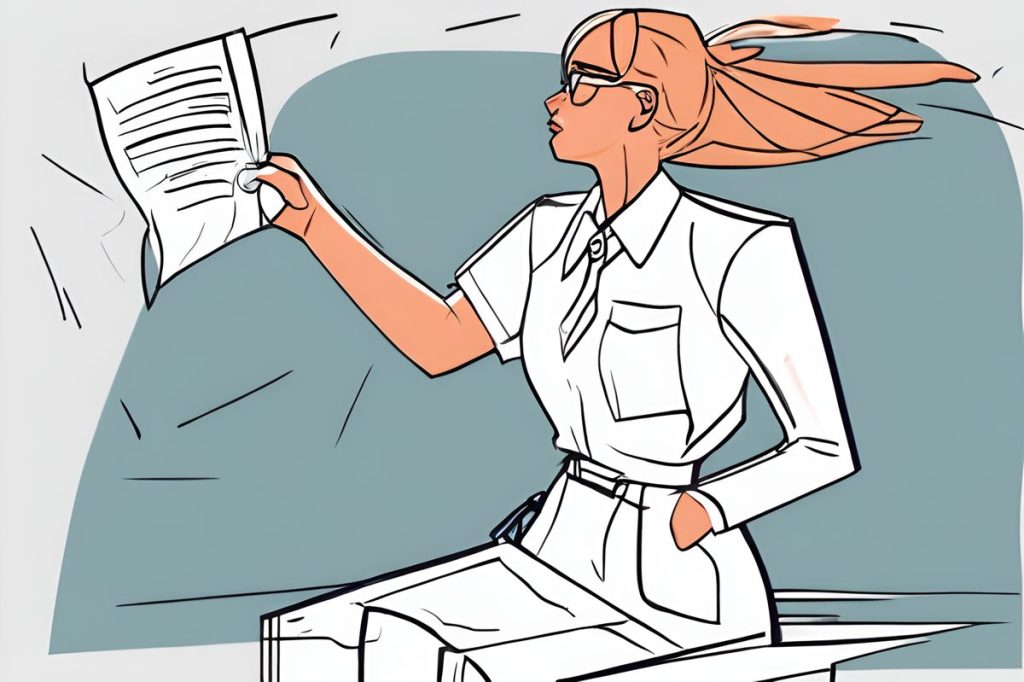In a victorious legal battle, journalist Evdokia Loizou secured €925,000 in compensation after a 13-year struggle, attributing her encephalitis to harsh working conditions at the state broadcaster. The Nicosia district court’s decision marked a significant win for workplace health rights, despite the broadcaster’s announcement of an appeal, sparking discussions on public sector dynamics and justice in the workplace.
What legal victory did journalist Evdokia Loizou achieve after a 13-year struggle?
Evdokia Loizou won a landmark legal case recognizing the link between her encephalitis and harsh working conditions at the state broadcaster. The Nicosia district court mandated compensation of €925,000, including VAT, interest, and legal costs, marking a significant victory for workplace health rights and justice amidst challenging public sector dynamics.
A Lengthy Legal Battle and a Landmark Decision
The journey of Evdokia Loizou, a journalist who faced a dire ordeal due to adverse working conditions, recently culminated in a significant legal victory. After a grueling 13-year struggle, a district court in Nicosia acknowledged the link between Loizou’s encephalitis and her professional environment at the state broadcaster. The court’s acknowledgment brought about a mandate for compensation amounting to €925,000, inclusive of VAT, interest, and legal costs. Despite the court’s decision, the state broadcaster announced its intent to appeal, an action that could prolong the resolution of this already drawn-out confrontation.
At a press conference, Loizou conveyed her experiences with the striking phrase “I experienced torture.” Her account highlighted a lack of support from the broadcaster when she raised her health concerns. She recounted how her legitimate medical issues were met with skepticism and ridicule, leading to her being subject to a disingenuous medical board evaluation by a psychiatrist, despite having multiple medical reports from specialists in London as well as Cypriot neurologists and pneumonologists.
Presidential Influence and Public Sector Dynamics
The decision to appeal the ruling, as stated by Loizou’s attorney Michael Vorkas, falls under the influence of President Nikos Christodoulides. The president possesses the power to appoint the board of the state broadcaster, and by extension, can guide the actions of public organizations under state ownership. This extends to the broadcaster, where the president’s say can have considerable impact on its operations and decisions. The current situation puts the broadcaster’s choice to appeal under scrutiny, given the potential influence of the president’s directive.
The case sheds light on the broader issue of employment conditions within the public sector. It raises questions about institutional support for employees with medical concerns, the processes for addressing such issues, and the implications of long-lasting legal disputes on the well-being of employees. Furthermore, it highlights the tension between the need for organizational accountability and the complexities of navigating public sector administrative and legal structures.
A Battle Beyond the Courtroom
Loizou’s ordeal has resonated deeply with the public and press communities. Her battle, while personal, reflects systemic issues that many professionals encounter within their careers. The societal impact of such a case cannot be overstated as it represents the struggles for fair treatment and the pursuit of justice against institutional inertia and resistance.
While the final outcome of the appeal remains to be seen, Loizou’s plight underscores the importance of workplace well-being and the necessity for employers to be cognizant of their duty of care. It also serves as a reminder of the power dynamics at play within state-run entities and the role that higher governance has in shaping the experiences of their employees. As the story continues to unfold, it provides an ongoing commentary on the intersections of health, employment, and the legal system.
What legal victory did journalist Evdokia Loizou achieve after a 13-year struggle?
Evdokia Loizou secured €925,000 in compensation after winning a legal battle that recognized the link between her encephalitis and harsh working conditions at the state broadcaster. This victory marked a significant win for workplace health rights and justice amidst challenging public sector dynamics.
What challenges did Evdokia Loizou face during her struggle for justice?
Evdokia Loizou faced significant challenges during her 13-year struggle for justice. She recounted a lack of support from the broadcaster when she raised her health concerns, experiencing skepticism, ridicule, and a disingenuous medical evaluation by a psychiatrist. These challenges highlighted the need for institutional support and the complexities of addressing medical issues in the workplace.
How does the involvement of President Nikos Christodoulides impact the case?
President Nikos Christodoulides’ influence is significant in the case due to his power to appoint the board of the state broadcaster, potentially guiding the organization’s actions. This raises questions about the influence of higher governance on public sector dynamics and decisions, particularly in cases involving legal disputes and employee well-being.
What broader societal implications does Evdokia Loizou’s case have?
Evdokia Loizou’s case extends beyond her personal struggle, shedding light on systemic issues within workplaces. It underscores the importance of workplace well-being, organizational accountability, and the complexities of navigating public sector administrative and legal structures. Her story serves as a reminder of the power dynamics at play within state-run entities and the ongoing pursuit of justice in the workplace.

